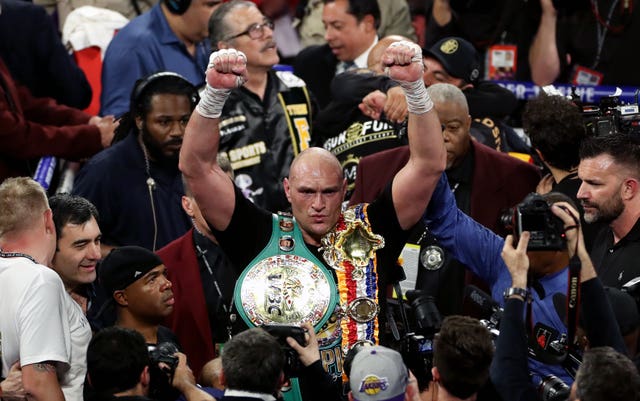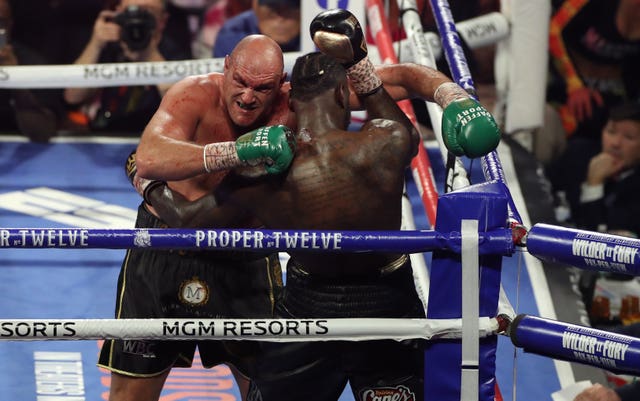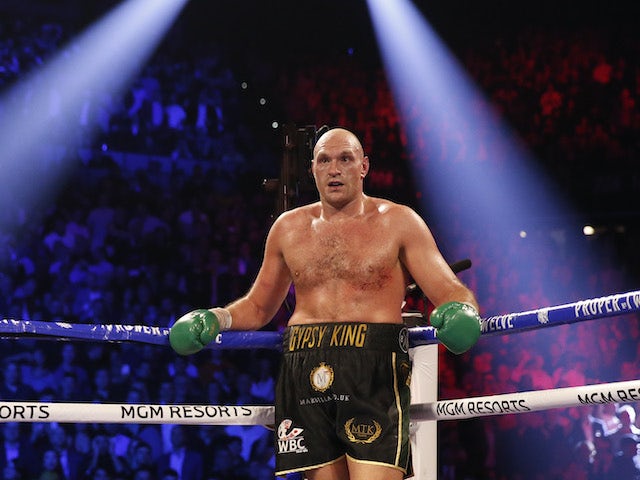As Tyson Fury celebrated becoming heavyweight champion of the world by singing "Bye, bye Miss American Pie", it was a stratosphere away from his darkest hour when he almost said farewell for good.
Weeks after he shocked the world by defeating boxing royalty Wladimir Klitschko in November 2015, Fury became embroiled in a battle with drugs, depression and suicidal thoughts. He was ready to end it all by driving his Ferrari into a bridge at 190mph.
"I just wanted to die so bad," Fury said. "I gave up on life, but as I was heading to the bridge I heard a voice saying, 'Don't do this Tyson. Think about your kids, your family, your sons and daughter growing up without a dad'.
"I said I'd never think about taking my own life again."

Eighteen months later, Fury produced a remarkable ring return, rising off the canvas in the final seconds to draw with Deontay Wilder in December 2018.
On Saturday night, he headed into their Las Vegas rematch as the bookmakers' underdog. Yet, within seven spellbinding rounds of brilliant boxing in front of a sell-out crowd at the MGM Arena, Fury stopped the unbeaten American to complete one of the finest comebacks in recent sporting history.
For the self-proclaimed Gypsy King, whose journey to the top has been littered with brilliance, but controversy, absurdity and stupidity, too, Saturday's Sin City night could now prove the defining moment of his life.
Fury has always been a fighter. He was born on August 12, 1988, three months premature and weighing just one pound. His Irish traveller parents, John and Amber, named him after the then-undefeated undisputed heavyweight world champion, Mike Tyson.

Fury turned professional in 2008 before becoming the British and Commonwealth champion with victory over Dereck Chisora three years later. Then, in 2014, he would beat Chisora again, this time for the European and WBO International heavyweight titles.
Fury went on to become a global name in November 2015 when he defied his odds as a 4/1 outsider to end Klitschko's decade-long heavyweight reign with a unanimous decision to take the WBA, WBO, IBF, IBO, Ring magazine, and lineal heavyweight titles.
But his joy would be short-lived. What was there left to accomplish for the man who worked all his life to become boxing's best?
His life spiralled out of control. He drank heavily, he took drugs. His weight ballooned to more than 28 stone. He expressed abhorrent views on race, women, and the LGBT community – comments he later retracted. He then came within seconds of ending it all on an American highway.
But that lowest of lows proved the spark for Fury to return. A world champion in the ring. A champion for mental health out of it. And, after defeating the 34-year-old Wilder with a devastating display on the Las Vegas Strip, an all-British mega-fight with Anthony Joshua now beckons.
"I've got another old fella across the pond who might want a little tickle," said Fury of his compatriot. "Then that is it. It's completed. Done."







